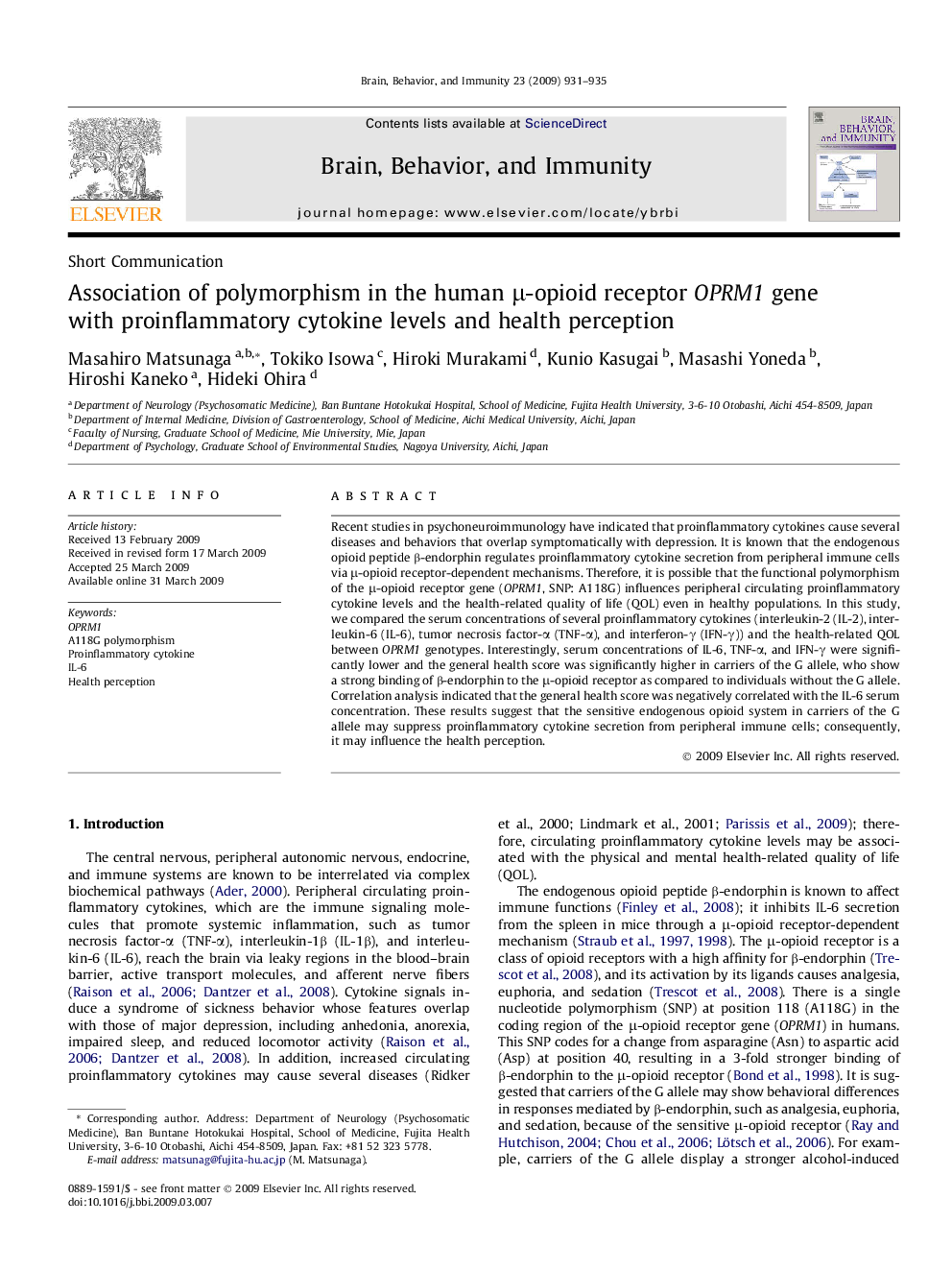| کد مقاله | کد نشریه | سال انتشار | مقاله انگلیسی | نسخه تمام متن |
|---|---|---|---|---|
| 923497 | 921089 | 2009 | 5 صفحه PDF | دانلود رایگان |

Recent studies in psychoneuroimmunology have indicated that proinflammatory cytokines cause several diseases and behaviors that overlap symptomatically with depression. It is known that the endogenous opioid peptide β-endorphin regulates proinflammatory cytokine secretion from peripheral immune cells via μ-opioid receptor-dependent mechanisms. Therefore, it is possible that the functional polymorphism of the μ-opioid receptor gene (OPRM1, SNP: A118G) influences peripheral circulating proinflammatory cytokine levels and the health-related quality of life (QOL) even in healthy populations. In this study, we compared the serum concentrations of several proinflammatory cytokines (interleukin-2 (IL-2), interleukin-6 (IL-6), tumor necrosis factor-α (TNF-α), and interferon-γ (IFN-γ)) and the health-related QOL between OPRM1 genotypes. Interestingly, serum concentrations of IL-6, TNF-α, and IFN-γ were significantly lower and the general health score was significantly higher in carriers of the G allele, who show a strong binding of β-endorphin to the μ-opioid receptor as compared to individuals without the G allele. Correlation analysis indicated that the general health score was negatively correlated with the IL-6 serum concentration. These results suggest that the sensitive endogenous opioid system in carriers of the G allele may suppress proinflammatory cytokine secretion from peripheral immune cells; consequently, it may influence the health perception.
Journal: Brain, Behavior, and Immunity - Volume 23, Issue 7, October 2009, Pages 931–935